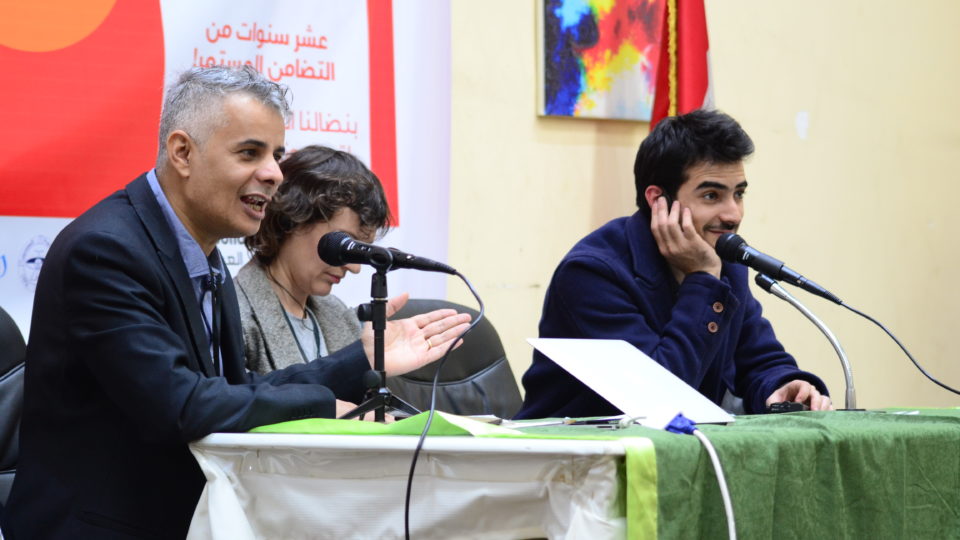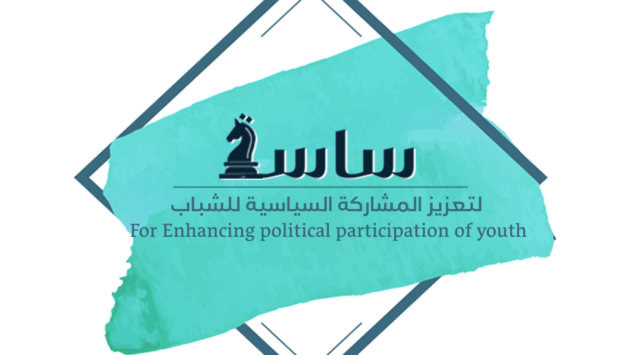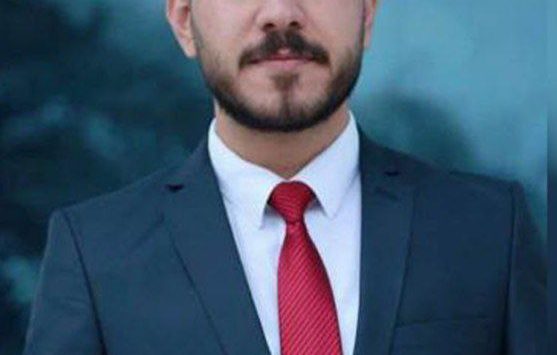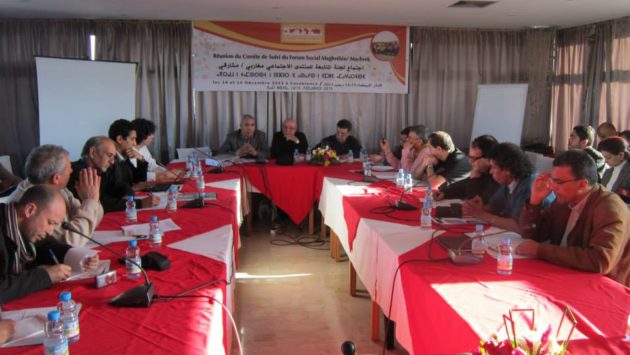With our common strife we grow stronger and achieve more
Ismael Dawood
A presentation about the agendas of the Iraqi Civil Society Solidarity Initiative (ICSSI) – Baghdad January 31st 2019
Ladies and gentlemen, good morning and I welcome you again, allow me to share with you, in these few minutes, a summary about the ideas, goals and background on which this conference is grounded.
As most of you already know, internationals and Iraqis have established a platform for solidarity with Iraqi civil society over the past ten years. The Iraqi Civil Society Solidarity Initiative (ICSSI) was created in 2009 in Rome, Italy out of a common conference between Iraqi and international solidarity activists.
The idea was and still is about growing an example and an experience for effective solidarity with Iraqi civil society. What I mean by effective is that it goes beyond compassionate solidarity with Iraq’s suffering through words, or grieving over the country in times of hardship. Instead, effective solidarity means developing a common agenda which is built on partnership and an understanding of the common causes of strife. That is because we here, in this small village and on this planet that is a dot in a vast universe, have no other option but exercise effective solidarity for a better future for us and for our village, this world.
For such solidarity to occur, we need continual dialogue about and revision to our causes and the state of our partnership. Therefore, we wanted to hold a conference to discuss the status of solidarity with Iraqi civil society whenever he had the financial resources, even it was only a little. This is how we have had numerous conferences and have built 10 years of effective solidarity together.
Today, and after 10 years of ICSSI conferences, we have agreed to have an important and careful stand in the Iraqi Civil Society Solidarity Initiative conference, especially since it is being held in Baghdad for the first time.
As you see in your printed invitation card, the organizing team considered two axes on which to base the conference program over the next two days.
The first axis is pause for evaluation, to look back and review together what the major achievements of Iraqi civil society have been over the decade, as well as the failures and challenges we faced along the way. This is an important task, with distance from the rich work, to be able to stand and evaluate what happened over time. That’s what we are going to do together in the first half of the first day.
The second axis is a call for insight into our surroundings, and where we are now. Iraq has witnessed many developments and it is not natural to navigate a situation, packed with so many different variables such as the case in Iraq, without understanding where we are or the tools that we used over a decade. Let’s have a look at what is around us today. The situation is not easy but there are important factors that describe where we are now.
We are in Iraq, a country with a protest movement that aims to reshuffle politics and governance. The alarms rang and rang about critical issues. We asked new questions that we were not used to asking these years: Who guarantees water? Who protects the environment from the disasters of pollution that are only worsening? Who is responsible for providing work and a decent life? When will women’s rights slogans come down from walls and become a reality for our women here?
Most importantly, Iraq was transferred from a consumer of the theories of nonviolent struggle to practitioners of these theories, an ongoing experience that others stand to learn from. This is what we will try to consider together in the second half of this day. We are in Iraq after Kurdistan’s referendum, and after the protests of the sons and daugthers of Iraqi Kurdistan. We look forward to solutions to the problems that we have been addicted to for decades.
We are in Iraq, next to Syria, the place that has attracted intervention from the regional and international powers, such as Iran, Russia, the United States and Turkey. We can’t close our eyes. We must understand what is going on there.
All of this, despite the difficulties and complications, we thrive to face it and study it in the second day of our conference. I don’t claim that we will finish this review process in a single day. The point instead is to start together, making use of our collective presence here.
All of this is necessary to know the kind of solidarity that is needed by Iraqi civil society in the coming stages and what role each of us will play – Iraqis, internationals and diaspora Iraqis.
As you all can see, the second day opens with interventions from partners and sponsors. But please pay close attention to the fact that they are here as great and committed partners. Because while so many people have abandoned us, when working in Iraq became an old fashioned and went out of style, our partners stood firmly and were always there for us. When some of the sponsors chose to have a cold relationship with their local partners, considering only the project administration and its budget, our partners here invited us to join them as equals and to meet over and over to learn more about our causes, when our youth built the slogan “Another Iraq is Possible”, amidst grave hardships. These partners stood by us and chanted with us, ‘Yes it is possible!’
This not a sponsor-beneficiary relationship. This is a relationship of built on a belief in a project and a cause. These are life-long companions. I mean here the Norwegian Karibu foundation, the Swiss PHI foundation, the French CCFD foundation and our friends in the EU. For all of the aforementioned, we have a dedicated session for and with them in the second day.
I will stop here but I should note that the conference will pave the way for strategic meetings with the youth of the Iraqi Social Forum, the Social Forum in Kurdistan and other local forums. During these meetings, youth will make plans for the upcoming 4 years, in addition to revising their past work and solidarity mechanisms for future application.
Thank you all, and I wish you a successful conference.
Ismael




